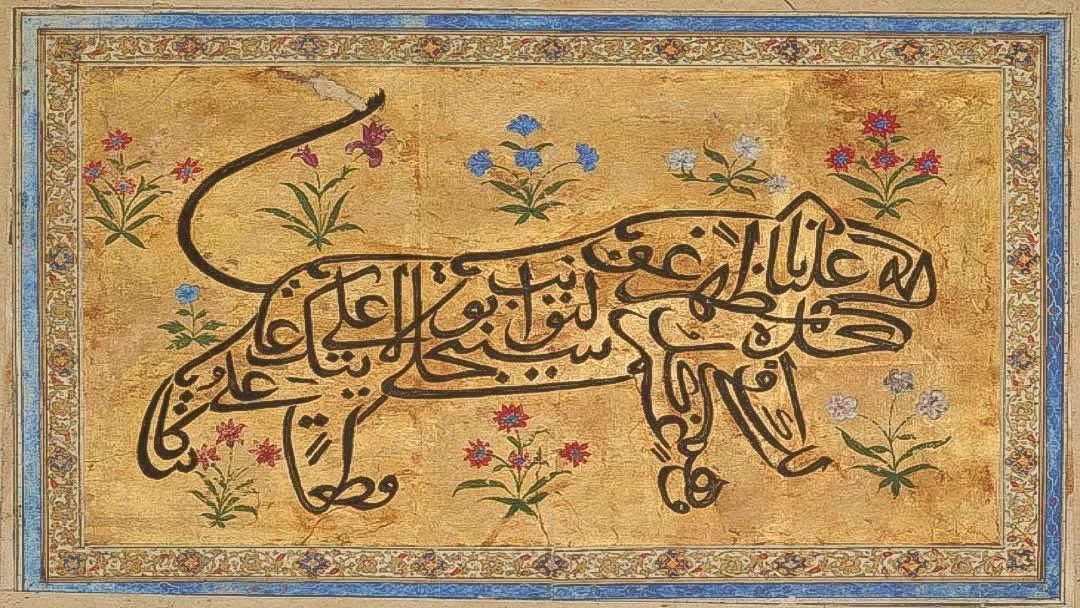Yawm-e-Ali: The Sacred Birthday of Moula Ali (A.S) Through Quranic Verses
Yawm-e-Ali: Celebrating the Sacred Birth of Moula Ali (A.S) through the Light of Quranic Wisdom
A uniquely remarkable birth stands out in Islamic history - Moula Ali's birthday represents the only time a child entered this world within the Ka'ba's sacred walls. Hazrat Ali ibn Abi Talib (a.s)'s extraordinary circumstances birth symbolise his exceptional status in Islamic tradition.
Hazrat Ali (a.s)'s influence reaches far beyond the reach and impact of his birth circumstances as the first Imam of the Shi'i Muslims and the fourth of the Rightly Guided Caliphs. His profound teachings, embodied in the monumental work Nahj al-balagha ('The Way of Eloquence'), shaped Arabic literature and Islamic intellectual sciences, including jurisprudence, theology, and Qur'anic interpretations.
This piece explores the sacred significance of Hazrat Ali's birth through Quranic verses. The verse of walaya (5:55), the verse of purification (33:33), and the verse of ikmal al-din (5:3) clarify the spiritual authority and pure lineage of this remarkable man who became a paragon of wisdom, piety, and virtue in Islamic tradition.
The Divine Significance of Hazrat Ali (A.S)'s Birth
Hazrat Ali (A.S)'s birth around 600 AD stands as an unmatched event in Islamic history [1]. Historical sources tell us this momentous occasion happened on the 13th day of the lunar month of Rajab [1].
The story of Hazrat Ali's birth unfolds with extraordinary events. His mother, Fatima bint Asad (A.S), felt labor pains near the Ka'ba. She prayed by the holy sanctuary when something miraculous happened - the Ka'ba's wall opened to let her enter [2]. She stayed within these sacred walls for three days until she gave birth to her blessed child [3].
Many respected scholars have documented this miraculous event:
Al-'Allama al-Amini referenced sixteen Sunni sources and fifty Shiite sources that verify the birth inside Ka'ba [4]
Famous historian al-Mas'udi noted this difference in "The Golden Meadows" [1]
Modern scholar Shah Waliullah Dehlawi verified this historical account [2]
This birth location holds immense importance. No other child has been born within the Ka'ba's sacred walls since its foundation thousands of years ago [3]. People saw this miraculous event as a clear sign of Hazrat Ali (A.S)'s special spiritual status [2].
This sacred birth in Allah (S.W.T)'s House means much more than just a historical moment. Islamic tradition sees this unmatched event as a symbol of Hazrat Ali (A.S)'s unique role in spreading Islam's message and defending its principles of justice and truth [5].
Quranic Verses Heralding Maula Ali (A.S)'s Arrival
The Holy Quran contains many verses that indicate Hazrat Ali (A.S)'s high status. Scholars have identified over 300 verses about his sacred position through authentic Sunni and Shia sources [6].
Verse 5:55, known as the verse of walaya, carries special significance among these revelations. The verse states:
"Your protector is only Allah and His Messenger and those who believe, who perform the prayer and give alms while bowing down" [7].
(5:55)
Sunni and Shia commentators, particularly Ibn Abbas and Mujahid ibn Jabr, have linked this verse to the time Hazrat Ali (A.S) gave his ring to a beggar during prayer [7].
Beyond this, the Verse of Purification (33:33) proclaims:
"God only desires to remove defilement from you, O People of the House, and to purify you completely" [8].
Scholars have identified this verse specifically addresses the Ahl al-Bayt, which includes:
Hazarat Muhammad (S.A.S)
Hazrat Ali (A.S)
Hazrat Fatima (A.S)
Hazrat Hasan and Hazrat Husayn [8] (A.S)
On top of that, the verse's use of the restrictive particle "innama" (only) highlights its exclusive application to these blessed individuals [7]. These sacred revelations stand as proof of Hazrat Ali (A.S)'s unique position in Islamic tradition and prove right the miraculous circumstances of his birth within the Ka'ba's sacred walls.
The Spiritual Legacy of Hazrat Ali (A.S)
Hazrat Ali (A.S)'s spiritual legacy shines as a light of wisdom that guides millions today. His title as the Gate of Knowledge reflects his position as the most learned scholar of his era [9]. This remarkable scholar mastered a variety of disciplines, particularly logic, mathematics, astronomy, and rhetoric.
The lifeblood of Hazrat Ali (A.S)'s spiritual heritage stems from his role as Islam's supreme metaphysician [10]. His profound metaphysical insight resonates through sayings like
"I have never seen a thing except to have seen God before it" and
"If the veils were to be removed from the mysteries of the world, it would not add to my certitude" [10].
His teachings highlight these fundamental principles:
Knowledge seeking as worship
Justice in governance
Moral excellence cultivation
Sincere devotion practice
His wisdom found its most articulate expression in Nahj al-balagha ('The Path of Eloquence'), which became one of the most influential books accessible to people in the Islamic world [10]. This masterpiece contains his sermons, letters, and short sayings about various subjects. He established himself as the source of virtually all esoteric traditions in Islamic spirituality [11].
His spiritual legacy reaches far beyond theoretical knowledge. His emphasis on practical wisdom echoes in his famous words: "Knowledge is a tree whose fruit is action" [12]. Millions find inspiration in his teachings that guide them toward spiritual excellence through a balanced combination of knowledge and practice.
Conclusion
Hazrat Ali (A.S)'s extraordinary birth inside the Ka'ba's sacred walls proves his high spiritual status. This unique event perfectly matches several Quranic verses that clarify his distinguished position in Islamic tradition.
Without a doubt, the verses of walaya, purification, and wisdom confirm the exceptional qualities given to this remarkable figure. His profound teachings in Nahj al-balagha created a lasting legacy that exceeds time and guides those who seek knowledge and truth.
His spiritual heritage guides eternally and provides practical wisdom to those who want to achieve spiritual excellence by combining knowledge with practice.
References
[1] - https://www.britannica.com/biography/Ali-Muslim-caliph
[2] - https://en.wikipedia.org/wiki/Birthplace_of_Ali
[3] - https://www.al-khoei.org/the-birth-and-birthplace-of-imam-ali-as/
[4] - https://en.wikishia.net/view/Birth_of_Imam_Ali_(a)_Inside_the_Ka%27ba
[5] - https://www.moneycontrol.com/religion/hazrat-ali-s-birthday-2025-date-history-and-significance-article-12902275.html
[6] - https://al-islam.org/ask/which-verses-in-the-quran-are-related-to-hazrat-ali-as-being-the-imam-and-helper-of-rasoolallah-peace-be-upon-him/sayyed-mohammad-al-musawi
[7] - https://en.wikipedia.org/wiki/Verse_of_walaya
[8] - https://en.wikipedia.org/wiki/Verse_of_purification
[9] - https://www.alim.org/history/khalifa-ali/ali-the-gate-of-knowledge/
[10] - https://www.britannica.com/biography/Ali-Muslim-caliph/Shiism-Sufism-and-the-chivalric-orders
[11] - https://simerg.com/literary-readings/surrender-and-realization-imam-ali-on-the-conditions-for-true-religious-understanding/
[12] - https://al-islam.org/imam-alis-first-treatise-islamic-ethics-and-education-zainol-aabideen-qorbani-lahiji/8-illuminate



